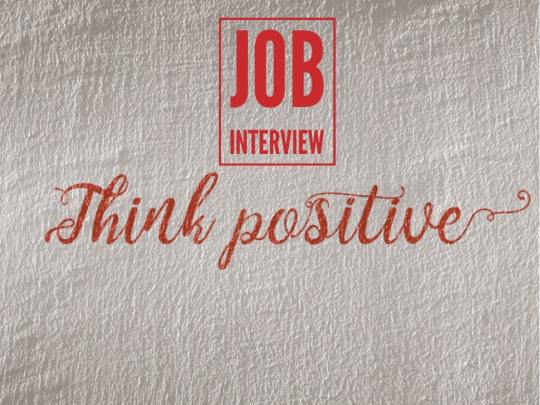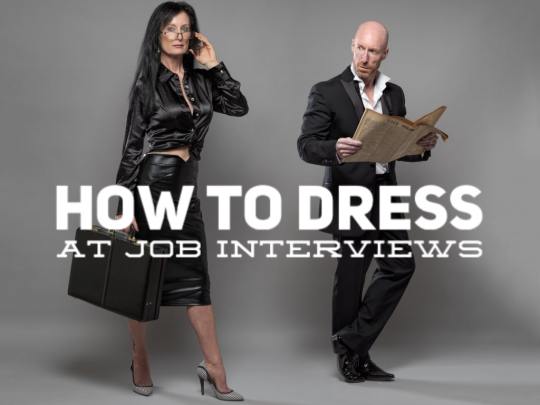When the ending happens long before the goodbye.
Last active 2 hours ago
Don't wanna be here? Send us removal request.
Text
Low-key obsessed with this drawing. It's like couples therapy in art form.
Love In Action

Every relationship has its cracks; it's how we fill them that counts. How do you and your partner mend the gaps? Share your tips below!
16 notes
·
View notes
Text
Who knew a simple sketch could be so deep? Time to work on my stitching skills.😂
Love In Action

Every relationship has its cracks; it's how we fill them that counts. How do you and your partner mend the gaps? Share your tips below!
16 notes
·
View notes
Text
Some resumes use qualification or achievement summaries to present objectives and goals. Summaries follow or even replace objective statements. Sometimes these sections come at the end, providing the resume with a solid bottom line. Note that not all resumes include these elements; it's up to you to decide whether you need them.
Basic income is considered a radical idea. But in 2020 we lived it and some people want it back
Giving everyone a bit of money to live on could end up giving back a lot more to everyone in society, experts in basic income argue. from ABC News https://ift.tt/30apjZq via https://ift.tt/2Sy1yCs
83 notes
·
View notes
Photo

Leaving a job is an imperfect art form of which I have achieved finger-painting level. No matter how well you leave it, there are bound to be some hurt feelings, which again, you have no control over.
But what about the bridges you did burn? Through immaturity, arrogance or anger? What about the times you did indeed bow out with one finger raised but it was not the thumb? What then?

You Have More Skills Than You Think
If we ever had coffee and I asked you what your skills are, after quoting Liam Neeson from the movie Taken, you’d probably tell me one of two things: 1. I don’t know what my skills are. 2. I don’t have (m)any. The first answer might be born from the simple fact that you haven’t thought about that question ever. I once had a job that required us to do self-evaluations of our own skills. This exercise felt like an invitation to invent new ways you were awesome. We were motivated to do this because we all knew our raises were dependent on it but we still had a hard time coming up with a list of skills. My coworkers and I would scratch our heads and write things like “numbers.” My skills are numbers. That’s not a skill, that’s The Count from Sesame Street’s passion. That’s a noun. The second answer, the belief that you don’t have many, is probably because you’re human. We humans have a difficult job seeing our own skills as skills. Roy H. Williams, author and marketing expert, says, “It’s hard to read the label when you’re inside the bottle.”1 We don’t consider them skills but rather just things we do.
So during this fictional coffee, the first thing I would do is to try to help you figure out what skills you already have. I’d even pull out a stack of note cards, which would probably make you recoil a little. Because once again, we’re about to cross the threshold between dreaming and doing. Dreaming is fun. Future results are enjoyable to talk about. Present efforts are not. But I’d push through all the hope you’ve stored in someday and try my best to get you to focus on the skills portion of your CSA today.
We tend to focus on “how to get more skills” first, which is understandable. “Get more” conversations invite you to dream. Assessing what you already have forces you to be honest. One of those is clearly more fun.
But this is a critical point in this section. Because now we’re going to do some work. The goal is to create a list of our current skills so that we know what we have to work with, what might be missing and what we want to improve. Don’t worry—we won’t be using note cards in the hustle or character sections—but when it comes to skills we need a method for figuring out where we are in order to head toward where we want to be.
We’re going to build on the approach we started with in relationships. In that section, there was only one step: Write the name of someone you know who can help with your Do Over. Skills take a little more detail, but I assure you this is just as simple as the first exercise you already crushed. ■ What We’re About to Do There are only two steps to this exercise: 1. Write down ideas. 2. Look for patterns. For my high-detail friends this is like some sort of dream come true. You probably already have a note-card drawer sorted by color and size. For my low-detail friends, you are among company. I feel your lack of organization but I assure you that your career is worth it. ■ Step 1: Write Down Ideas I have a stack of cards on my desk. One of them just says, “Naps.” I have no idea what that means now. It’s possible that at one point I was creating a list of things that are awesome or perhaps brainstorming activities Winnie the Pooh likes. Hard to say, but here’s what’s important: It doesn’t matter.
I don’t want your cards to be perfect. I just want you to write. I want you to work your way into the freedom to write down any skills that you like. I say work your way into it because like most people, you’ve been taught to be safe. Somewhere on the road to adulthood we decided that dreams were dumb. We stopped wanting to be firemen and astronauts and settled for stuck and predictable. We accepted the lie that Monday must be boring.
Step 1 is all about quantity. One skill per card, as many cards as you can come up with. This is not the time to edit. For now, we’re going for volume. Don’t ask yourself “Is this dumb?” It might be, and that’s OK. All I want you to do is write one skill you currently have per card. Don’t try to cram multiple ideas onto a single card.
To get started, here are some questions you can answer about your skills: 1. What are you good at? Screw humility. This is no time to be humble. This is the hero’s slow walk from an explosion moment. What’s something you’re good, dare I say, amazing at? Do you create great marketing proposals? Can no one balance a budget like you can? I’m not talking about just in your current job either. Go way back. If you were a fantastic paperboy, write down “On-time delivery.” With relationships, we surfaced the casual ones because there’s no telling where they might lead. Same with skills. Surface them all! 2. What comes naturally? This question will generate some “Oh, this?” skills, those things you don’t even think about because they come so naturally to you. You think everyone can do what you do, but we can’t. The elaborate dinner parties you throw so easily, like Sarah and her Neighbor’s Table, are indicative that you’re amazing at event planning and connecting with others. That thing that comes naturally to you is difficult for the rest of the population. Just because it’s easy doesn’t mean it’s not a skill. 3. What do people pay me to do? If you’ve ever had a single job, this question is going to generate at least one note card. What were your responsibilities at your favorite job? Write them down, one card per skill. For instance, if you were in charge of quality assurance for software launches, write down, “quality assurance.” Increase the cards this question generates by asking, “What skill would people pay me to do?” (Hint: The answer is “Almost anything.”) 4. What are you afraid of? Bears, obviously, but besides these furred denizens of death there are plenty of important skills hidden inside our fears. The reason is that great passions usually come with great fears. You’ve known you were supposed to do something for years, but have been avoiding it because you’re afraid of it. Write that down. For example, I would list “writing” as one of my fears. Isn’t that stupid to be afraid to do the thing I feel most called to do? It is, but no one ever accused fear of being smart. This one might feel counterintuitive because we’re often told to answer the question “What do I love doing?” when it comes to figuring out our dreams and skills. I think that’s an important question and one you could certainly ask with this exercise, but I’ve also learned we can be afraid of the things that really matter to us. Be honest with yourself. Do you really dread public speaking or are you afraid of it because you’re worried you might not be good at it and it’s something you secretly want to do? 5. If you wrote an eBook, what would the topic be? Times are tough. Bills are due. Ma and Pa are about to lose the beet farm. The only way to save the situation is to write a twenty-page eBook that teaches eager shoppers to do something you’re good at. Are you renowned for your ability to pack ten days of clothes into a small carry-on for business trips? Have people marveled in the past at your skills in creating marketing strategies for book launches? Have you figured out a unique way to fit a fully functional wood shop in your garage but always thought of it as a silly hobby? If you had to create an eBook today, what would the topic be? If you had to write a series of three, what would be in your trilogy? ■ Step 2: Look for Patterns Now that you’ve got a few skills labeled you’ll start to notice something: Some of the ideas are related. They might not say the same thing, but they are at least cousins in the family tree of creativity. As you start to see some that are similar, begin grouping them together. Cluster them in a way that you can still see the nugget of each idea at a glance. If you create a vertical stack that covers up all the ideas except the one on top, you won’t be able to see them all at once and might miss something important. Group them in the way that works best for you. Maybe you want to group yours by “Skills I love doing,” “Skills I get paid the most for,” “Skills I want to improve” or “Skills I haven’t used in a long time.”
Don’t worry if you don’t come right out of the gate with some patterns. If this is your first go-round with an activity like this, you shouldn’t be great at it yet. Try tweaking this exercise to make it work the best possible way for you.
Please don’t get stuck using a tool that is designed to help you get unstuck. This shouldn’t be a perfect process. In fact, I hope it’s not. You should only spend a few minutes when you initially do this, then walk away. Building a Career Savings Account is a lifelong process; you’ve got time. Put your cards in a spot where you will see them during your average day. I want you to bump into them as you walk to the kitchen or garage. Some (most) ideas are elusive. They don’t walk into our heads and announce themselves; we have to capture them. And often they won’t come out until they’re positive we aren’t trying to find them. Don’t believe me? OK, so how come your best ideas come in the shower? Did you step into the shower and tell yourself, “Today I will condition my hair and try to brainstorm solutions to that problem at work”? Of course not. That wasn’t even on your brain and yet, mid “repeat as necessary” the solution hits you!
I don’t think you should bring waterproof note cards into your shower, but you should keep a stack of regular cards around. Fear would love to add the inconvenience of searching for one as a way to prevent an idea from seeing the light of day. Beat it back by keeping a stack in a few locations at home. And keep some in your pocket. It might feel a little strange, but anyone who judges you for writing down an idea and trying to be smarter about idea capture is a jerk. (You could always do this using an app on your phone but remember, there’s still something powerful about physically writing an idea down.)
The goal of looking for patterns is greater clarity into what skills you possess. If you have ten skills written down, for instance, and nine of them fall into the category “Skills I don’t use at my current job,” we need to fix that. We need to find a new job that uses more of your skills, bring more of your skills to your current job or learn the skills your job actually requires.
If you ended up with two note cards and a pattern of “I have no skills, I hate you Jon Acuff,” it might be time to phone a friend. Grab coffee with someone and ask them flat out, “What do you think my skills are?” If they’re like my friends their first temptation will be to say something about your ability to pay “da billz,” but immediately after they go to the extreme and rock a mic like a vandal they will surprise you with skills you forgot to write down. This conversation will definitely help you, but it will also be excruciating. It will feel like you’re asking a friend to list all of the ways you are awesome. Even if you set it up the right way and ask for a tangible skill and not a flowery compliment, you’re still going to squirm while they respond. Suck it up. You’re good at something. To pretend otherwise is a waste of time. The point of the note-card exercise is to generate two different things: 1. Hope 2. Awareness The first one is simple: Launching a Do Over takes a tremendous amount of hope. At the start of a journey like this, it’s very easy to get discouraged and think you currently don’t possess many career skills. Hopefully seeing them on a handful of note cards for the first time has encouraged you that just like with your relationships, you’re better off than you thought. The second goal, awareness, is something that will also come up in greater detail in the hustle section. In the skills portion, the purpose of increased awareness is to help you see new skills you might want to acquire. Whether you want to get better at your current job or find a new one, chances are you will need new skills. Seeing what skills you currently have on note cards often helps increase the awareness of what’s missing, those new skills you might need for a new job or to break through a Career Ceiling.
Remember Relationships get you the first gig, skills get you the second. You have more skills than you think. Writing them down and looking for patterns is a great way to discover that.
Don’t let fear hide a skill you’ve always had or wanted to pursue. Just because you’re afraid of doing something doesn’t mean you shouldn’t. If you have a hard time filling out note cards, tag a friend in to help you.
Read More
#selection criteria writer #resume writer #key selection criteria #government jobs #CV #Cover letter
92 notes
·
View notes
Photo
ways to think about your career—should you move up in the company that employs you, should you look for a lateral move in that company, or is it time to pull up stakes and head elsewhere?

https://www.gumtree.com.au/s-ad/main-beach/other-business-services/government-selection-criteria-writing-service/1063121802
#resume #cover letter #selection criteria #selection criteria writer, job application
45 notes
·
View notes
Photo

https://www.gumtree.com.au/s-ad/main-beach/other-business-services/government-selection-criteria-writing-service/1063121802
46 notes
·
View notes
Photo
Go to the workplace of the person you want to see and inquire about the best way to set up a meeting.

How doyou get an interview? The most effective way is in person, face-to-face. Getting in front of the person you want to ask for an interview can be time-consuming and difficult, but percentagewise no approach has a higher success rate. There are many, many variations on the in-person approach, some of which are:
Go to the workplace of the person you want to see and ask politely but directly for a chance to talk. (This works better with middle managers and smaller companies, where you are less likely to encounter unfriendly gatekeepers.)
#selection criteria writing service#selection criteria#free selection criteria template#professional resume writer
3 notes
·
View notes
Photo
Career challenges Some people are victims of challenges they did not intend to create for themselves: how to get a job, change careers, how to pay the rent or fix the car or correct a mistake at work or repair a troubled relationship.

You like your job, but you feel your recent employment review doesn’t paint a good picture of you. First of all, many performance reviews (in my humble estimation) do more harm than good. Sure, some are done very well, but most employee reviews are done by people whose work isn’t in human resources. It’s time-consuming and tedious, like asking the head of the shipping department to review and report on the work of the manufacturing department. Sure, many people take the assignment seriously, but when they don’t, you can suffer—or even find yourself promoted to jobs you are not yet qualified to handle.
click here
74 notes
·
View notes